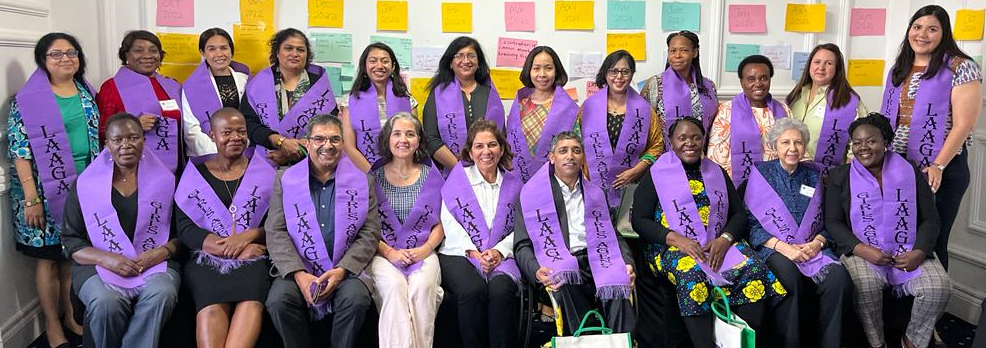The Learning and Action Alliance for Girls’ Agency (LAAGA) is a community of practice composed of 23 leaders from 18 countries across Africa, America, Asia, and the Middle East (all of them Echidna Global Scholar alumni) and the Brookings Center for Universal Education team focused on gender equality in and through education.
LAAGA is guided by a vision of a world that values the knowledge and dignity of girls and young women, listens to their voices, and supports them in taking action to shape their own lives and those of their communities. Grounded in feminist principles and collaborative approaches to research and practice, our journey has been one of co-construction and iteration. We’ve delved into critical questions surrounding “girls’ agency”: What exactly does “agency” entail? How does it vary by context? Who gets to define it? When we speak of “girls,” which girls, and for what reasons? And most importantly, how can we incorporate girls’ voices, perspectives, and lived experiences into our research processes?
Why girls’ agency matters
For adolescent girls around the world, agency is a practical issue rather than a theoretical concept. Every day these girls make conscious decisions about their lives and the future, while they navigate larger social structures and power relations impacted by class, religion, race, and gender, among other factors. Accounting for this daily struggle is vital to improving learning opportunities and life outcomes for girls and their communities. Yet the agency of young people, especially that of girls and young women living in the most marginalized contexts, is often misunderstood, unrecognized, underdeveloped, and/or actively stifled.
Since 2022, in collaboration with the Center for Universal Education at the Brookings Institution, LAAGA is working to co-create ideas and understandings regarding the development and exercise of girls’ agency across diverse contexts. We are committed to translating these ideas into action, working alongside girls, their families and communities, educators, practitioners, and policy makers. Using girl-centered methodologies developed collectively, LAAGA is currently concluding the first round of research in four highly marginalized communities in Bangladesh, along the Kenya/Uganda border, in Vietnam, and in Zimbabwe. We are exploring how girls themselves perceive and practice agency in their lives and what are the practices and policies that either support or constrain that.

Meet the LAAGA members
- Mayyada Abu Jaber, Jordan
- Christine Apiot Okudi, Uganda
- Nangyalai Attal, Afghanistan
- Musammat Badrunnesha, Bangladesh
- Jin Chi, China
- Ellen Chigwanda, Zimbabwe
- Adefunke Ekine, Nigeria
- Ganga Gautam, Nepal
- Arundhuti Gupta, India
- Claudia Hui, United States
- Khadim Hussain, Pakistan
- Dasmine Kennedy, Jamaica
- Joyce Kinyanjui, Kenya
- Lorenna Maysonet Smith, United States
- Pamhidzayi Berejena Mhongera, Zimbabwe
- Armene Modi, India
- Sumbal Naveed, Pakistan
- Jennifer O’Donoghue, United States
- María Cristina Osorio Vázquez, Mexico
- Edem Dorothy Ossai, Nigeria
- Mary Otieno, Kenya
- Jamila Razzaq, Pakistan
- Atenea Rosado Viurques, United States
- Suman Sachdeva, India
- Nasrin Siddiqa, Bangladesh
- Samyukta Subramanian, India
- Tran Thi Ngoc Tran, Vietnam
